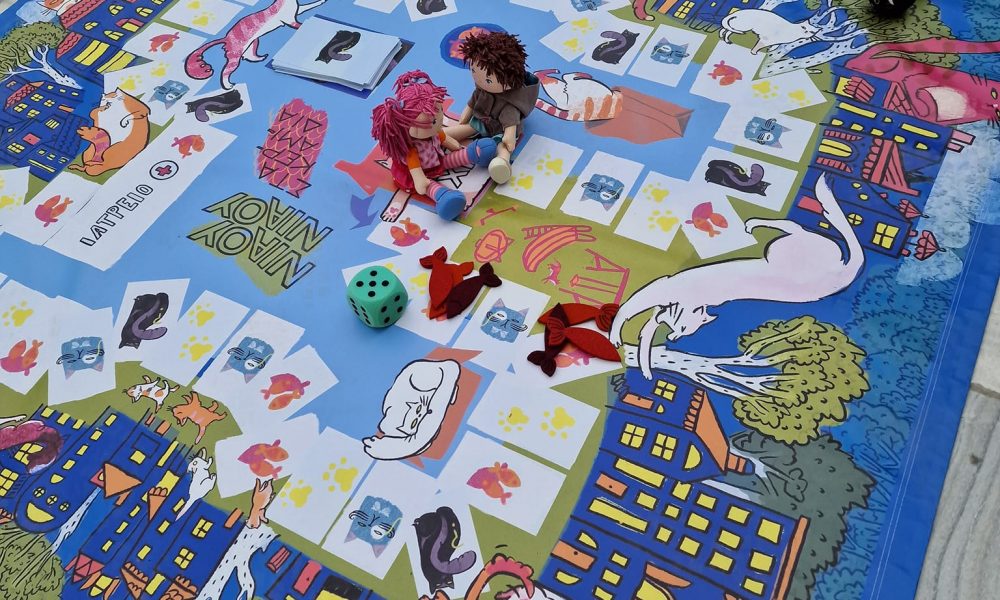“One’s own powers of making sense of the world are powers that develop naturally through action in the world.” Matthew B Crawford
One of the enduring ambitions at Animal Action Greece has been (and still is) to build a generation of young people whose attitudes towards animals will be more compassionate than those of their parents. So how do we reach them and affect the way they think? One way might be to intervene in what they are taught in school. Most teachers know that children respond with enthusiasm when ‘doing’ is involved and are more likely to retain what they have learned when they have been involved in an action than when they have been the passive recipients of information – no matter how attractively presented it may have been. That is why the Animal Action lesson plans for primary schools contain many participatory activities. Nevertheless, the classroom with its regimentations and unwritten rules is not, in general, a place where the young are offered opportunities to make discoveries either about the world around them or about themselves by ‘doing’, particularly not in Greece.
But what if the feeling of being ‘in a lesson’ can be bypassed altogether? What if we can sneak our messages into entertainment? Our experience of educational outreach work has frequently demonstrated what an effective tool one of the most instinctive human needs – the impulse to play – can be, and the work we have done to conceive and create four different games for children has aimed to mobilise this impulse to win hearts and minds for both nature conservation and the welfare of animals.
“TEAM TURTLE” is an online game that aims to cast the players as active rescuers of hatchling sea turtles, albeit in a virtual space, and, through scoring points when the young reptiles are successfully shepherded towards the breaking waves, to become responsible for an underwater seascape that though it seems initially barren, can gradually be transformed into a “Marine Scene” that teems with life and colour. The fate of the underwater world is in the player’s hands, so an emotional connection begins to be established, and emotion is an important element in making an experience memorable. There are marauding ghost crabs to avoid, litter to drag into a bin, and deep tyre tracks in the sand to fill in. “TEAM TURTLE” is available to play online free of charge and is hosted on the website of MEDASSET (the Mediterranean Association to Save the Sea Turtles). https://medasset.org/portfolio-item/team-turtle/
However, any experience that is mediated by a screen is essentially distancing. Our ambition is to give players something immediate, offering an opportunity to be physically as well as emotionally engaged with unfolding events, making the game (together with the messages it conveys), as real and therefore, once again, as memorable as it can be.
The second game, “CARAPACE RACE” (pictured below) is large scale, floor-based and packed with sensory input. It can be enjoyed by up to four individual players or four small teams at a time. The four, sea turtle ‘players’ leave their natal beach and journey towards the completion of their life cycle, encountering threats as they go. The turtles collect or lose turtle eggs along the way, and the winner is the one that arrives at the nesting beach with the greatest number of eggs to lay. As in other educational games, ‘Chance’ cards provide ‘fun fact’ sea turtle knowledge, but what makes this game different is the number of 3D characters that the players are encouraged to handle and, in anarchic interventions of their own, invent mini narratives about. Food items, octopus, squid, hermit crab and jellyfish help the turtles on their way, while a hungry seagull, shark, or ghost crab might attack and hinder them. Fishing nets can physically entangle a ‘player’ turtle and slow its progress. The action takes place in the real world, in real time. Just like it used to in Ancient Greek dramas!
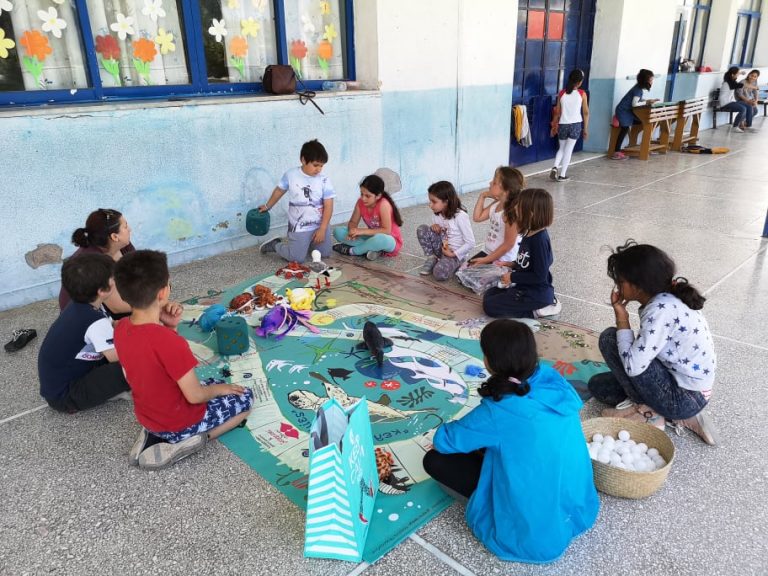
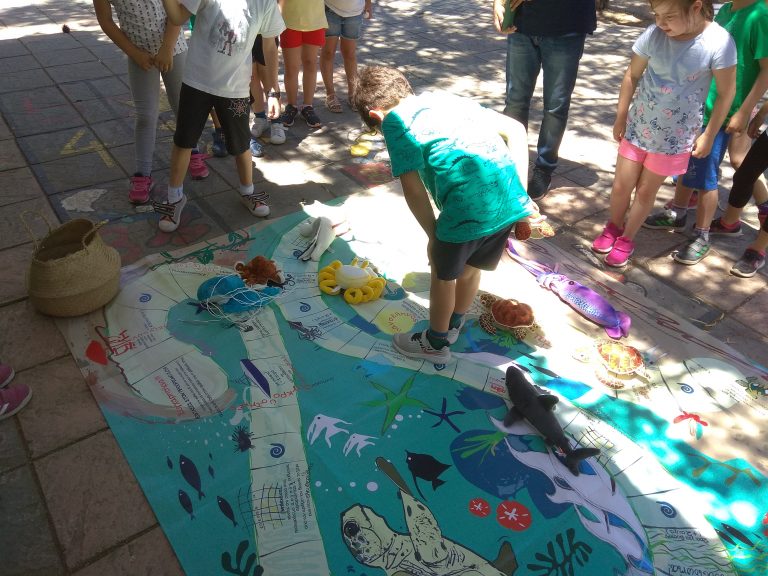
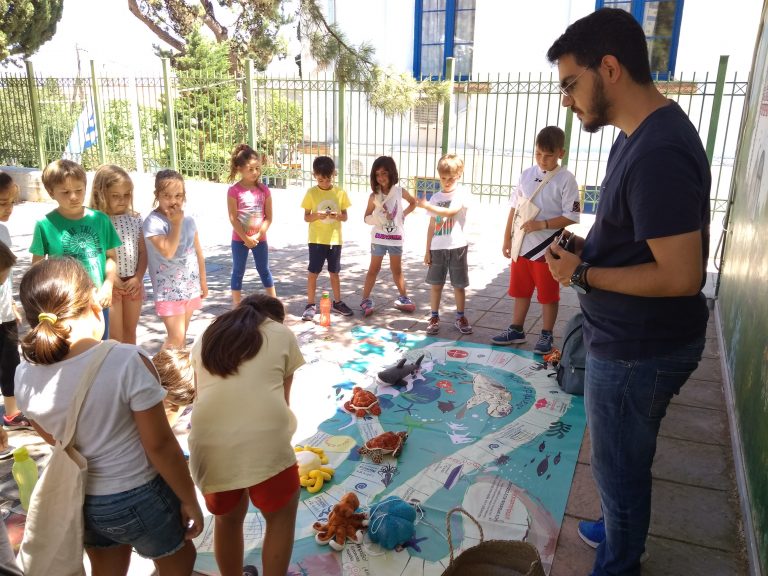
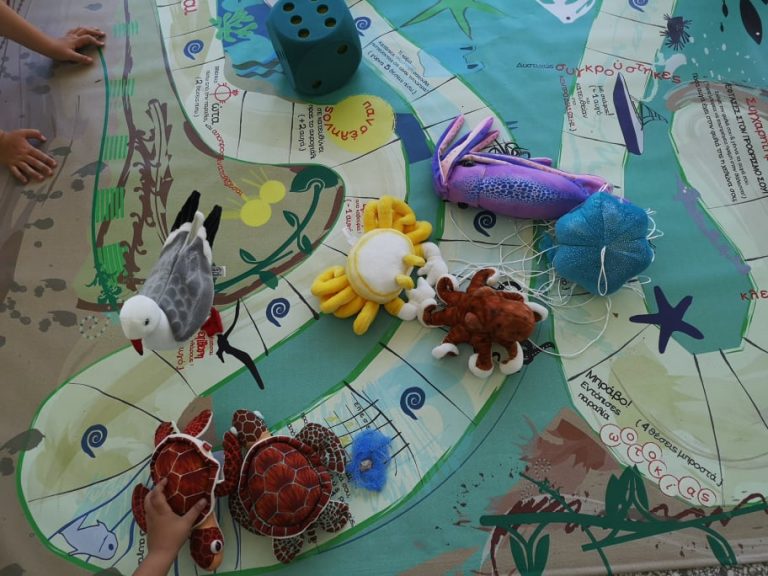
“ADESPOTAKIA” a tabletop game centring on the life of stray dogs, followed, and then a second floor-based game featuring street cats. Like “CARAPACE RACE” the cat-themed one, “NIAOY-NIAOY” (pictured below) also mobilises young players’ desire to handle the moving pieces. They are challenged to feed 3D fish to 3D cats and collect as many of them as they can.
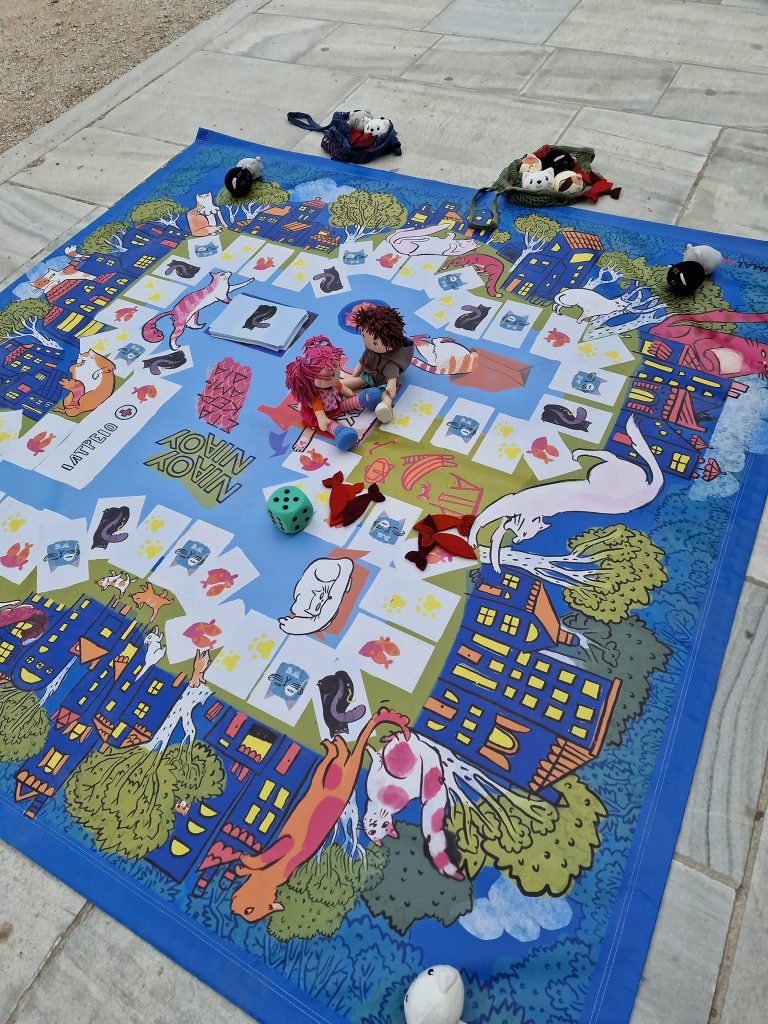
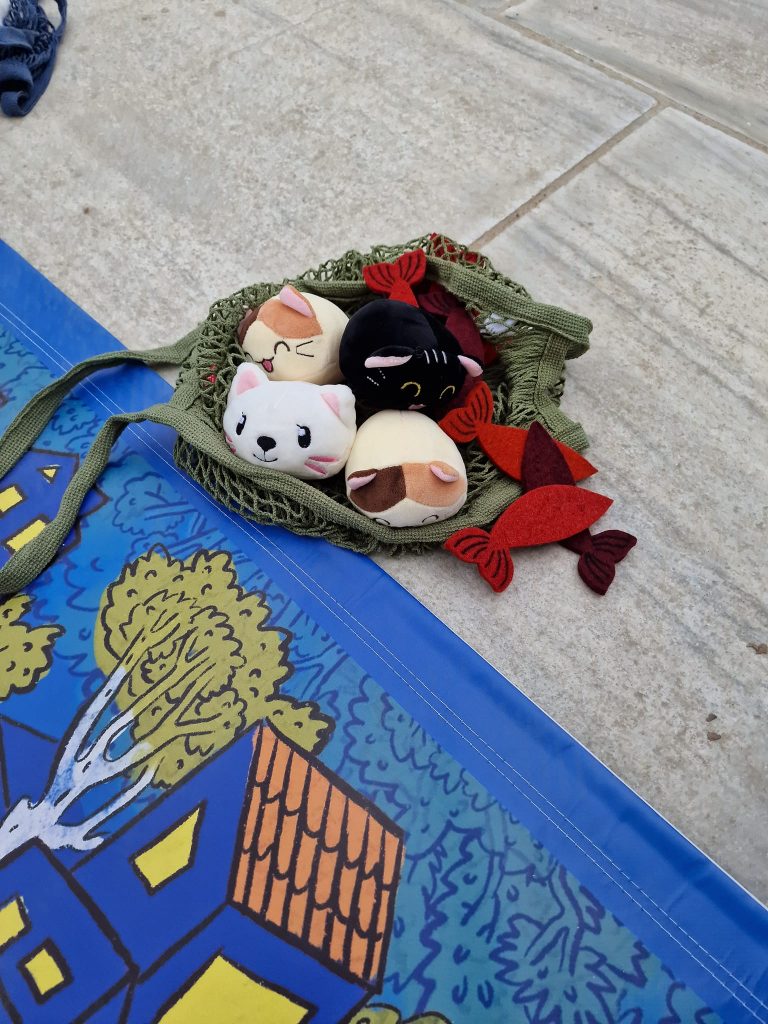
The guiding principle of all four games is that players should be encouraged imaginatively to enter into the world of each species – whether that might be a sea turtle or a companion animal – and, through the structure and chance events in each game, but also, crucially, through their own interactions, questions and individual contributions, experience the highs and lows in the life of each.
It almost doesn’t matter how often we are told something; we remember most vividly and trust most confidently what we have experienced for ourselves. Once each of us has felt (even if only imaginatively) what it might be like to be threatened, cast out, unwanted, pursued, cold or hungry something inside shifts and a space for empathy opens up. Creating an opportunity for that shift to happen, and for the seed of empathy to be planted, that is what our games are for.

